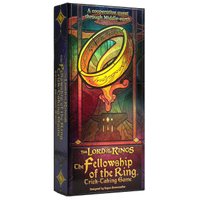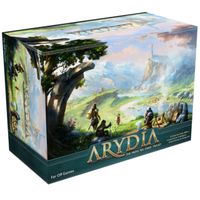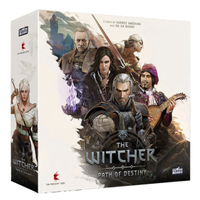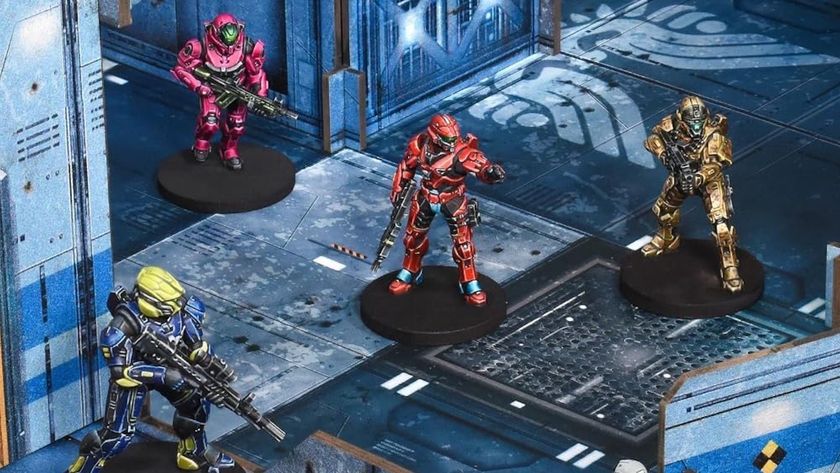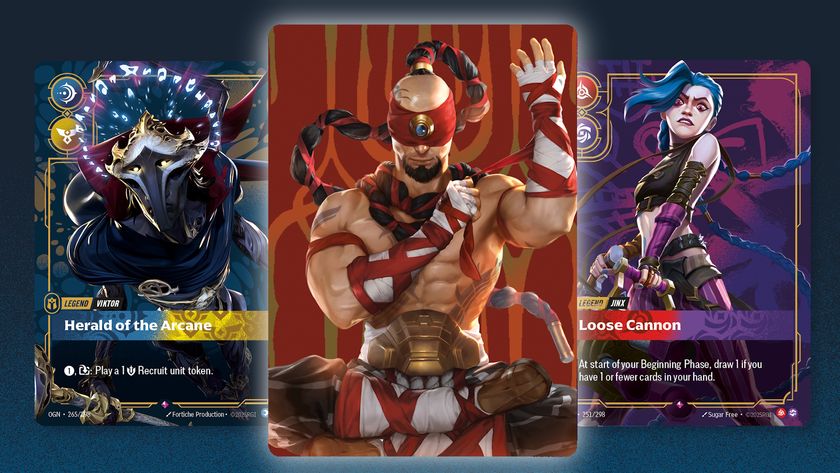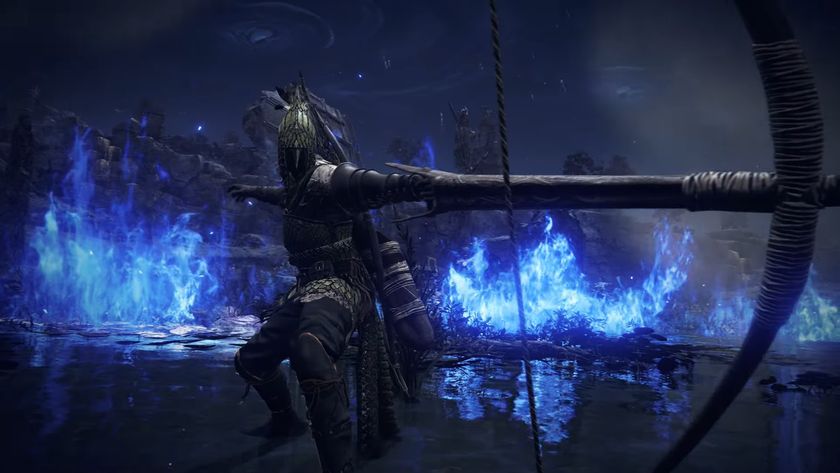The 9 best board games in 2025, tested by our experts
These games deserve to be in your collection, and each one has been hand-picked by the 12DOVE team
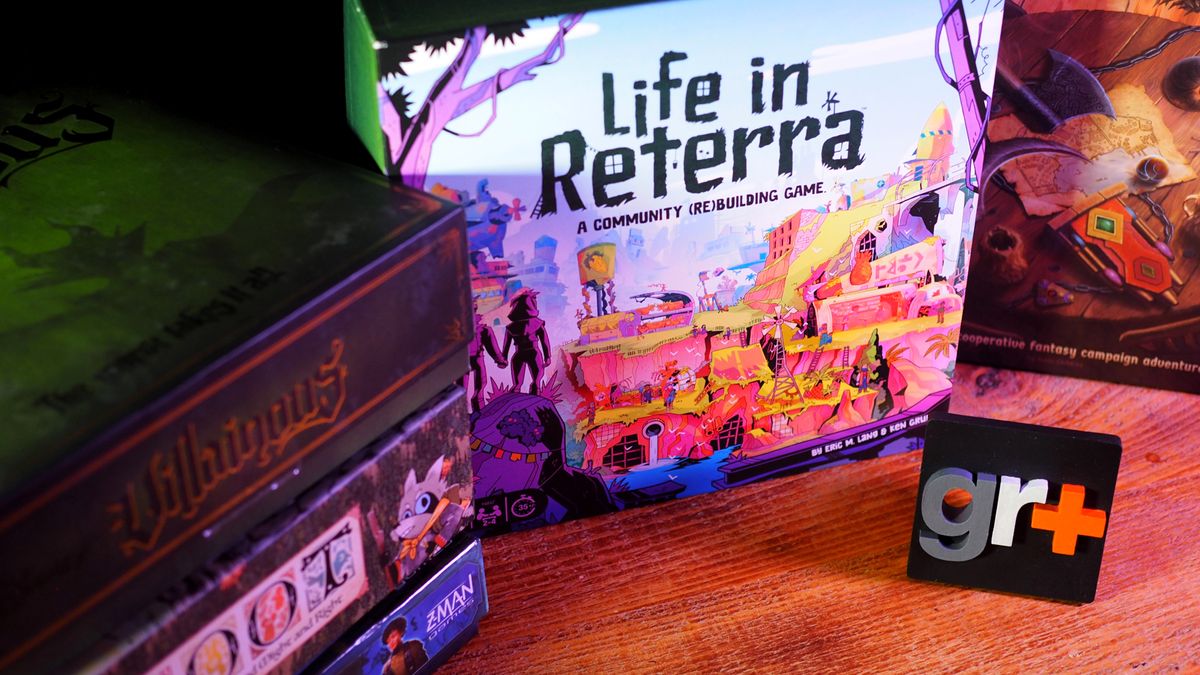
The weather is turning and spring is just around the corner, which makes me reminisce about playing the best board games at summer parties or chilling with family favorites in the garden with a pint in hand. Because the industry isn't just limited to endless Monopoly reruns anymore; it's overflowing with amazing new ideas. Long gone are the days when Risk was the most interesting thing on the menu.
To help you get started, our experts and I have put our heads together to build this list of suggestions that should be in every collection. (If you ask us, they're the best board games on shelves right now.) These run the gamut of old favorites like Catan to fresh-off-the-press trendsetters including Sky Team, and I'll update this page each month with any new additions that our team's fallen in love with. Oh, and if you're not sure what you're in the mood for, don't worry – 12DOVE still has you covered. Just check in with our advice on how to choose board games further down this page.
Wondering how we settled on which products to feature, on the other hand? Our team reviews the best board games all year 'round, and we've been rolling dice for decades before that. Basically, we won't ever recommend a product we don't truly believe in. As mentioned throughout this page's 'how we test' section, but rest assured that we've had extensive hands-on time with all of the entries listed below. If we don't think it deserves a place amongst the best of the best, it's not getting into the guide.
Recent updates
March 24, 2025: This page has been updated with new entries in the honorable mentions section across categories, along with fresh expert verdicts from our wider 12DOVE team.
Quick list
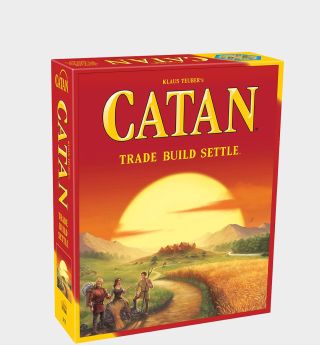
Best board game overall
There's a reason why Catan is often called the perfect 'gateway' game; it's accessible, but still has enough bite to keep you invested no matter your skill-level or experience with board games. It deserves to be in every collection.
Read more below
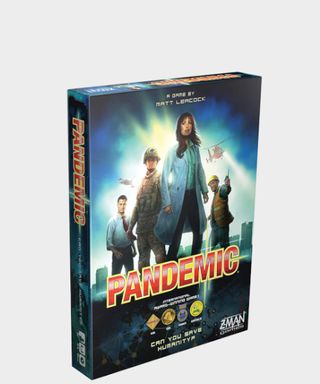
Best co-op board game
If you'd prefer to work with rather than against each other, this co-op classic comes highly recommended thanks to an emphasis on teamwork and nail-biting gameplay. It's challenging enough that winning is extremely satisfying.
Read more below
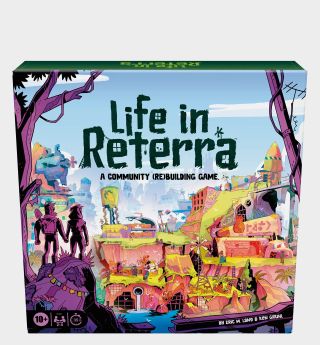
Best board game for adults
Combining the tile-laying brilliance of Carcassonne with surprisingly smart strategy, this is a brilliant, moreish option for games night that has enough longevity to keep you playing for months.
Read more below

Best 2-player board game
This new, award-winning game is already making waves thanks to nailing the 2-player experience; it forces you to bond as a team by offering challenges that can only be overcome as a pair. A must-have.
Read more below
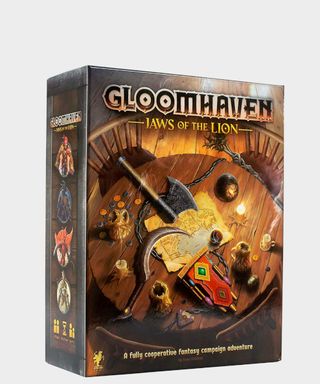
Best RPG board game
Thanks to a fully-realized world, a branching storyline, and more depth than the average mine, Jaws of the Lion is a must-have for fantasy-lovers that want a new epic to explore.
Read more below
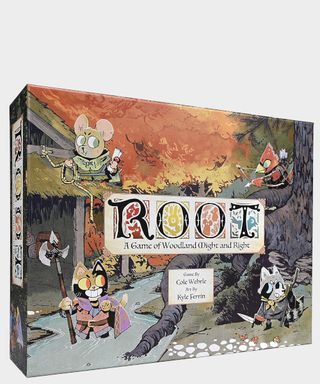
Best strategy board game
Don't be fooled by that cutesy art style; this is as hardcore a strategy game as you can get. Because each woodland faction boasts unique skills and objectives, there's a lot to sink your teeth into. It's very replayable as a result.
Read more below
Load the next 3 board games ↓
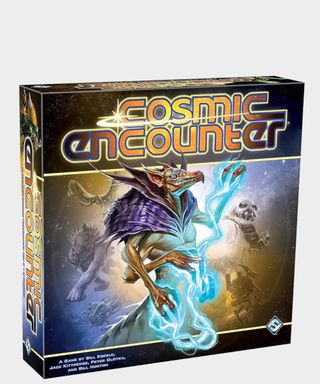
Best classic board game
This retro classic has been around for years, and that's no surprise; its blend of negotiation and rule-breaking is still just as gripping now as it was in the '70s.
Read more below
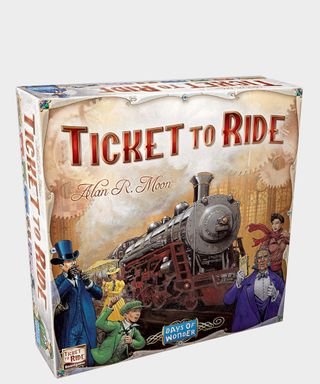
Best family board game
It's rare to find a board game you don't mind losing, but Ticket to Ride manages it. This is a phenomenally chilled-out experience that anyone can get their head around.
Read more below
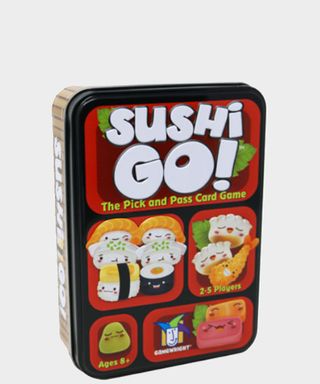
Best children's board game
If you're shopping for children, board games that are easy to understand but endlessly replayable are king. We've yet to find one that does it better than Sushi Go, and it's always one we recommend when asked.
Read more below
Best board game overall
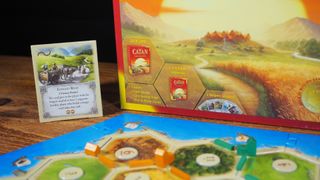
Specifications
Reasons to buy
Reasons to avoid
Catan is a big deal in the tabletop community. For one thing, most agree that it's the perfect 'gateway' into more sophisticated board games. If you're ready to graduate from the likes of Risk or Clue, it eases you in whilst still providing enough complexity for players to sink their teeth into.
Secondly, it might be one of the most influential games on this list. First published in 1995, it revolutionized the tabletop space and gained global recognition as a result. It also spawned an entirely new genre – 'Eurogames' – which now dominates the industry. With this in mind, it's hard to argue that Catan doesn't deserve a spot here as one of the best board games overall.
✅ You want a deeper board game that's still accessible: Catan is usually treated as the entry-point to 'hobby' gaming because it balances accessibility with deeper, less chance-based mechanic
✅ You want a stone-cold classic: This is the kind of board game everyone should have on their shelf. Besides being a trendsetter that transformed the space back when it launched, Catan still holds up as a damn good time.
❌ Your table is prone to arguing: Seeing as Catan pits you against each other in a struggle for space, rivalries could ensue. Bear that in mind if things can get a little heated around your table.
❌ You're used to more complex strategy games: Although it was revolutionary back in 1995 (it spawned an entirely new genre), things have moved on since then. Fans of modern strategy games may find it a little light.
Features & design: At face value, this is a resource-management game where players try to settle the eponymous island of Catan. Because space is limited, you'll all rush to secure resources (from stone to wood) which are used to build settlements and roads. These earn you Victory Points. As you might be able to guess, you'll need them to win.
Setting up shop next to the hottest goods doesn't guarantee success, though. Resources are given out each turn based on dice rolls, and these values are assigned randomly to an already random board at the beginning of a match. As such, you've got to weigh up probability and how likely something is to pay up ahead of time… or trade with rivals if you can't get what you need. Because feathers could be ruffled as you all dash to secure the most lucrative spots, this opens an amusing can of worms.
In terms of how it looks, Catan is equally forthright. Opting for classic wooden tokens and a realistic, birds-eye-view art style, it doesn't muddy the water with unnecessary pomp.
Gameplay: Even though it's easy to understand, Catan requires cunning if you want to snatch victory from the jaws of defeat. You can only get resources if you have a settlement next door, and these can't be placed if someone else owns a town nearby. That makes clever placement crucial, especially because you must build roads to reach certain board spaces. It's all about the bigger picture, so even though produce is given out randomly, foresight is rewarded.
You can try to edge a win by building the biggest military, constructing the longest road, or using well-timed cards too. This choose-your-own approach is Catan's biggest contribution to modern board game design; there's no 'right' way to go about things, so you're more in control.
Social interaction is encouraged as well, so it's not the kind of board game where you'll be checking your phone between turns. If a resource's number is rolled at the beginning of someone's turn, everyone with a settlement there gets produce. The floor then opens up to trade, which is its own twisty conundrum. Haggling for items may help you in the short term, but it could also bring your opponents closer to victory.
Similarly, hoarding resources won't do you any good. If you roll a seven at the start of a turn, the Robber is activated. This little pickle then steals half of every player's cards if they have over seven in their hand. They're then placed onto a tile to stop resource production there. Seeing as the person who rolled that seven gets to choose where the Robber goes, it's your chance to be mean.
This has the potential to cause friction if you have an argumentative table, but even that feeds into Catan's metagame. Annoying your rivals will guarantee that they won't trade with you, so even though there are ways around this (you can secure spaces which let players swap one kind of resource for another), it's a wrinkle worth considering. I've been sunk by this particular chestnut in the past, for example; I thought I was being clever by handicapping my biggest opponent's resources, but then I needed something only they had. Understandably, they told me to get stuffed when I approached them like Oliver Twist with an empty bowl.
That's why Catan has endured for 30 years in a nutshell – it makes memories. This isn't the kind of board game you sleepwalk through.
Criteria | Notes | Score |
|---|---|---|
Game mechanics | Catan revolutionized tabletop gaming and kicked off an entire genre when it launched. It's still just as compelling today. Because it rewards skill and forethought, victory is all the more satisfying. | 4 / 5 |
Accessibility | Even though it's by no means 'simple,' Catan is very easy to get your head around. It's the perfect gateway game for those graduating from Clue, Risk, or Monopoly. | 4 / 5 |
Replayability | Thanks to a randomized board and its focus on probability, you can keep coming back to Catan and get a different experience every time. | 5 / 5 |
Setup and pack-down | Putting the randomized board together with all its number tokens can be a faff at first, but it's not so bad once you've got the hang of things. | 5 / 5 |
Component quality | The artwork of Catan is iconic, but the latest version improves on a design that was starting to get long in the tooth. The tokens and board pieces are sturdy enough to survive a nuclear attack, too. | 4 / 5 |

"Catan sparked a revolution when it launched in the '90s, and gaming was changed for the better with its arrival. It isn't a relic better left in the past, however; it still holds up. Its core loop remains as engaging now as it was decades ago, and a wealth of ways to win gives you an agency you don't always get with family-friendly games." Read more: Catan review
Load honorable mentions ↓
Honorable mentions
Why you can trust 12DOVE
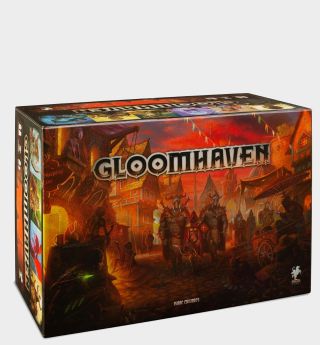
If you want another game which changed the industry forever, look no further than Gloomhaven. This sprawling epic takes the dungeon-crawling mechanics of old and builds them into a grand adventure unlike anything else in board gaming right now. This is the closest you can get to something like Skyrim on the tabletop.
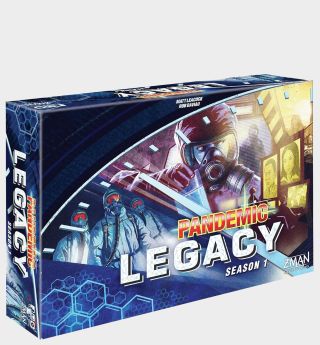
The Pandemic series had already made a name for itself amongst the best board games, and then it got in on the 'Legacy' craze where your actions have consequences that carry over into your next match. It handles the idea brilliantly, and is arguably better than the original Pandemic.
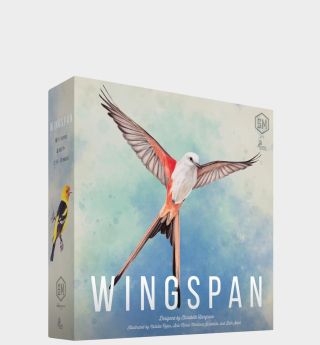
This award-winner is beyond popular, and I totally understand the appeal; it's as engrossing as it is chilled-out. The artwork is beautiful too, and it's competitive without being overbearing. (It's a race to gather points instead of a head-to-head challenge.) If you haven't tried it yet, you really should.
Best co-op board game
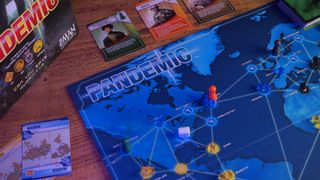
Specifications
Reasons to buy
Reasons to avoid
The odds are against you from the start in Pandemic, but that's the beauty of it. This team-based epic is never less than thrilling, and it doesn't feel hopeless either. Despite being tasked with curing a clutch of super-diseases, good communication (not to mention the ability to think on your feet) will see you through. Want satisfying cooperative board games for your collection? This should be at the top of the pile.
Sure, its theme hits closer to home nowadays. But there's something cathartic about giving a pandemic the boot… even if it's only in this tabletop world of tokens and cards.
✅ You want a gripping team game: Battling each other for supremacy can be exhausting, especially if the people you're playing with are competitive. That makes this co-op challenge a breath of fresh air. You win or lose together, and good communication is essential.
✅ You're looking for a challenge: This game doesn't take any prisoners, and that makes it all the more enthralling. You'll find yourself pushed to the brink as you wrestle with its clever mechanics.
❌ You don't like pressure: Tensions run high in Pandemic (you are saving the world, after all), so anyone that doesn't like pressure in games won't enjoy it.
❌ You want something easy: Want to avoid raising your blood pressure? It's probably better to stay away from this one - part of the fun in Pandemic is that it forces you to strategize on the fly.
Features & design: You're racing against the clock in Pandemic - you've got to contain and cure four deadly diseases that are sweeping across the globe. Naturally, this is far from a walk in the park. For starters, new infections (represented by dinky cubes) are placed on random cities each turn. If enough cases gather in one place, they'll spill into neighboring areas in a devastating domino effect. To make matters worse, the number of infections deployed each turn increases over the course of the game. Spin your wheels and you'll get overwhelmed.
This leaves you with a difficult choice: research a cure by collecting cards (at which point the game stops placing infections for that particular disease), or remove infections at a local level so you can keep things under control.
The game's visuals amp up this tension with a style taken from the CSI playbook. Although the movers are basic, single-color pawns, everything else feels flashy. It's the sort of thing you'd expect to see displayed on a massive screen while someone says something dramatic, like "my god - San Francisco has fallen."
Well, apart from the disease cubes. I've always thought that those could pass for sweets, which is pretty distracting on the whole. (Ah, forbidden jellies - how delicious you seem.)
Gameplay: Pandemic's balance of risk and reward secures its throne as one of the best board games overall. Is it better to keep disease levels down so that they don't spread from city to city in the short term, or should you play the long game and go all-in on developing cures? There's no right answer, and this puts the power into your hands. Random chance dictates which cards get drawn from turn turn, of course, but everything else is all down to your strategy.
More importantly, that question will keep you on the edge of your seat from start to finish. I've rarely seen our board group more invested than when they're playing Pandemic, and the need to constantly change your battleplan on the fly means that communication is vital - a must for co-op games.
It's true that all this can be stressful. But it's also gripping. As mentioned in our review, such white-knuckle decision-making "shows off everything tabletop gaming is capable of."
Criteria | Notes | Score |
|---|---|---|
Game mechanics | There aren't many co-op board games that can so elegantly balance tension and teamwork. This is a masterclass in strategy. | 5 / 5 |
Accessibility | It may look intimidating, but Pandemic is pretty easy to get your head around. Mastering it is a whole other matter, though. | 3 / 5 |
Replayability | Infections are placed at randomly-selected locations at the start of the game and can spread in any number of directions, creating a cascading domino effect of possibility. That means there should be plenty to keep you busy. | 5 / 5 |
Setup and pack-down | While it isn't a chore to lay out, Pandemic does require you to place a number of 'disease' cubes around the board before play begins. More will be used throughout the game, so there's quite a lot to put away once you're done. | 3 / 5 |
Component quality | Thanks to a design reminiscent of CSI thriller shows and hardy tokens (be it the cures or tiny disease cubes), there's little to complain about here. | 5 / 5 |

"There's no real board game canon, but if there were, Pandemic would clearly be included. While the subject matter might sound particularly dark, the actual mechanics of where to place resources are straightforward and serve as a good shift from map-based games like Risk to more crunchy titles. It's a classic for a reason, but is maybe a second step rather than a gateway game." Read more: Pandemic review
Load honorable mentions ↓
Honorable mentions
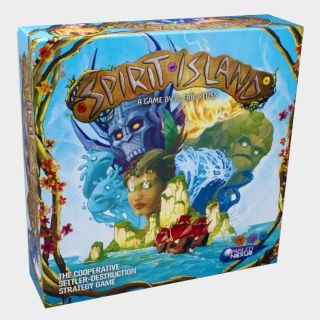
It's tough to find a co-op board game with a better reputation than Spirit Island. This is a true giant of the genre thanks to its smart, engrossing gameplay that flips the script on cliches. Rather than colonizing the board as per usual, your job is to rout the invaders who are trying to claim your land instead.
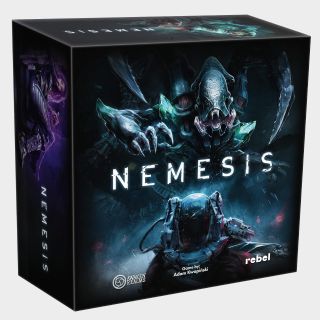
Despite being a 'semi' cooperative game, Nemesis understands the assignment - it nails the sense of paranoid tension that made the original Alien movie such a masterpiece. After all, everyone has secret objectives that may or may not help the group. Who do you trust? Finding out is part of the fun.
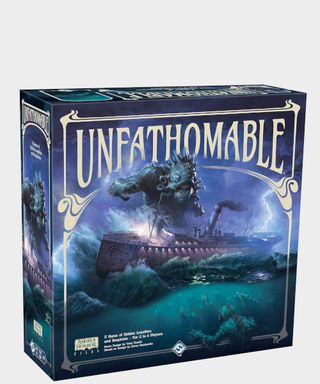
If you're a fan of deception games and horror, this will rank as one of the best board games. Despite being quite long, the struggle between traitors, other players, and monsters will have you on the edge of your seat. It's tough to know who's on your side and who's a secret turncoat, which makes Unfathomable all the more gripping.
Best board game for adults
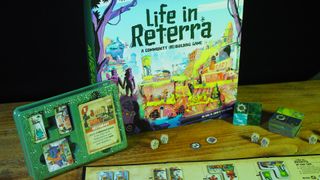
Specifications
Reasons to buy
Reasons to avoid
The world is over in this quirky board game for adults, but you won't mind. It's way too much fun.
Humanity is rebuilding after society collapsed, and it's your job to construct the best settlement whilst taking advantage of relics like the mysterious AA battery. (What could it be for? Who knows.) This results in a tongue-in-cheek rush to the finish that's incredibly moreish.
✅ You want an accessible but engaging strategy game: Want a more in-depth board game that's still easy to understand? Life in Reterra fits the bill. It's very accommodating for newcomers but has a wealth of options that'll take time to master.
✅ Longevity is important to you: Looking to get maximum value for money? Life in Reterra ticks the box. Because its cards and buildings can be mixed and matched for wildly different results, there's always a new challenge to experience.
❌ You want a complex strategy game: That 'lite' approach is a double-edged sword. If you're expecting it to go up against games like Twilight Imperium or Scythe, you'll be disappointed.
❌ You have limited table space: Life in Reterra won't take up loads of room, but it sprawls out if you have more players.
Features & design: Unlike most post-apocalypses, there isn't a zombie or viking-themed gang anywhere in sight here. Instead, everyone's recycling remnants of civilization into something new – and better. That old plane, for instance? It'd make a good school. What about that massive radar dish? The perfect soccer pitch, I'd say. You'll place these buildings on an ever-expanding board in a quest to construct the perfect village.
In a fitting twist, Life in Reterra recycles old ideas as well. It takes the ideas laid down by games like Carcassonne and molds them into an entirely fresh experience. What follows may seem like a tile-laying exercise, but you've got to think hard about where you place those pieces. Buildings that earn you points or bonuses have to be put on cog symbols, and you're only allowed to construct something if it's at least partially on a tile you just laid down. Whoever gets the highest score at the end will win, so you better think ahead. Particularly because the game finishes once you've put down 16 tiles…
That means you can't spend too long admiring the scenery, even if you'll want to. With the exception of a weirdly dull beige board where buildings are stored, this is a beautiful game; it opts for a vibrant cartoon aesthetic instead of dreary realism. It comes with excellent plastic tubs to put your pieces into as well, ensuring those tokens won't be flying everywhere when packed away in the box.
Gameplay: You'll often find yourself wishing you had more time during Life in Reterra. That's how it gets its claws into you – there's always a "what if." Due to short rounds which wrap up faster than you might expect, you'll be eager to reset and try something new you only thought of at the end of a match. I certainly am, and as someone who reviews the best board games for a living, this is a rarity.
There's a compelling risk/reward element at play here as well. You can only place buildings if they're partially on a tile you've just put down, and there are never enough cogs on a single piece. This leads to the quandary of whether you slap buildings down whenever you can, or hold off in the hope you can connect tiles for something bigger and more lucrative later on. That kind of mental Tetris is why Life in Reterra excels as a board game for adults; it exercises your gray matter and rewards repeat play with a regular group.
Each of the game's (many) buildings provide different and increasingly tempting rewards, you see, so they're worth messing with. Seeing as you can also mix and match these to create entirely new building sets with unique interplay, there's months of gameplay here to grapple with if you're willing to dive down the rabbit hole.
I'll admit that matches can end just as you're getting into them. Yet this is precisely why it works; you're always left wanting more. And yes, it doesn't have as much depth as other hobby games. But it's a superb middle-ground between the likes of Catan and Scythe, so I think it'll serve most people well.
Criteria | Notes | Score |
|---|---|---|
Game mechanics | Life in Reterra's greatest strength is that it doesn't try too hard. Its systems are simple but incredibly compelling, and this rock-solid foundation is built upon with increasingly interesting ideas later in the game. | 5 / 5 |
Accessibility | This is pitched as a 'lite' strategy game, which means it isn't a chore to learn. You can be grappling with it in no time. | 4 / 5 |
Replayability | Due to a wealth of building cards that can be mixed and matched however you see fit, you'll struggle to run out of things to do. | 5 / 5 |
Setup and pack-down | The addition of well-made storage tubs make this one hell of a lot easier to put away, and the fact you start from a single tile means setup is a breeze too. | 4 / 5 |
Component quality | Besides those storage cases to keep your tokens and cards tidy, Life in Reterra feels built to last. Its artwork is vivid and eye-popping as well, setting itself apart from the usual brown post-apocalypses. | 5 / 5 |

"The best board games get better the more you play and understand them, so Life in Reterra has earned its place at the table. This is much cleverer than you might first think, and despite its apparent simplicity, there's enough beneath the surface to keep you playing for months." Read more: Life in Reterra review
Load honorable mentions ↓
Honorable mentions
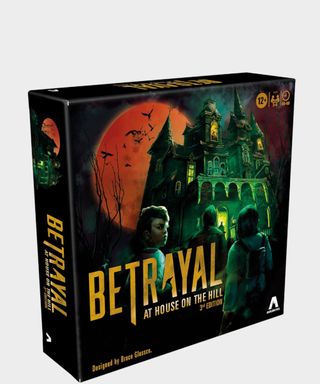
Expertly balancing exploration, teamwork, and tension with a frantic dash to the finish, this is one of the best experiences you can have on games night - it's a thrill. The wealth of scenarios to play through mean you won't get bored easily, either.
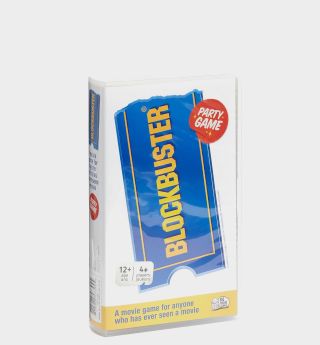
This movie-based battle of wits stands out from the crowd because everyone can get involved no matter how much they know about films – it's incredibly easy to explain and set up. Crucially, it's also a lot of fun.
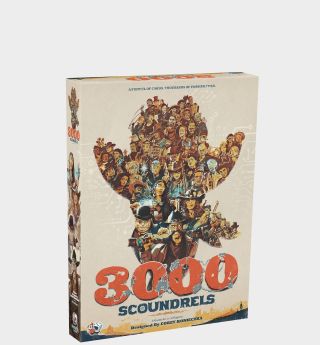
Alongside nailing the essential tropes of a Wild West adventure, this board game throws a curveball via a time-travel twist. When combined with near-limitless card combos and compelling bluffing mechanics, this is far from bad or ugly.
Best board game for 2 players

Specifications
Reasons to buy
Reasons to avoid
As the runaway success of 2024, Sky Team is taxiing its way onto more than a few wishlists. (That's the perk of winning a prestigious Spiel des Jahres award, I suppose.) Happily, it lives up to the hype; this is an engrossing exercise in teamwork that really makes you feel closer to one another because you're forced to overcome limited communication. That makes it great for couples.
It's also been designed specifically with two people in mind, and is small enough to take on the go. In other words? It's a textbook definition of what good 2-player board games should look like. Rather than trying to please everyone with mechanics that scale for a crowd, it's laser-focused on providing the best experience for a pair.
✅ You want a very replayable, portable game: Thanks to a wealth of scenarios and numerous mechanics drip-fed over time, Sky Team should impress. Because it's a fairly contained game that packs away into a reasonably-sized box, it's a great on-the-go option too.
✅ You want a game you can learn together: As the name would suggest, Sky Team is all about teamwork and coordination… and those skills will be put to the test as its scenarios become more challenging.
❌ You don't like limited-communication games: You aren't able to talk with your co-pilot once dice are rolled (you need to find other ways to communicate), so chatter-boxes may struggle here.
❌ You hate flying: A game where you have to land a plane, and can potentially crash it, may not be the best fit for aerophobes.
Features & design: Sky Team bundles you into the cockpit and asks you to land a plane without reducing it to a smear across the runway. In true jet-setting fashion, you and your co-pilot will fly across the world to airports which offer unique challenges.
Because each player contributes dice to control everything from speed to angle of approach, being on the same page is crucial. If you aren't in sync, things will quickly go pear-shaped. This is why those dice are rolled in secret and you aren't allowed to tell each other what you've got – you'll need to think up another way of communicating.
This is capped off with a board modelled on aeronautical instruments, so you'll certainly feel the part. Actually, that's one of my favorite things about the game; it looks much more lavish than you'd expect for the price.
Gameplay: Seeing as you can't talk once those dice have been rolled, it's hard not to become invested in Sky Team from the start. This isn't something you can play on autopilot – pun very much intended. Problem-solving together is baked into its DNA.
OK, I'll admit that this can be stressful. But if you want a challenge, you'll find one here. It doesn't throw you in at the deep end, either. Designer Luc Rémond has done a great job of easing you into harder objectives, not to mention drip-feeding new mechanics that shake things up.
As an example, perks are available to balance the scales – you can spend reroll tokens to undo a bad result or deploy a coffee to adjust the number up or down. Working out when to break out these bonuses is a significant part of Sky Team's strategy.
The result is a game that seizes you by the collar and refuses to let go. If you can only get one board game for 2 players, make it this one.
Criteria | Notes | Score |
|---|---|---|
Game mechanics | Because it's specifically designed for two people, Sky Team is laser-focused on providing the best possible experience for just a couple of players. It'll bring you closer together thanks to an edge-of-your seat system where you can't communicate with one another normally, and that ratchets up suspense. | 5 / 5 |
Accessibility | You'd think a game about flying planes would be complicated, but it's actually very straightforward. It's also good at introducing new mechanics piece by piece. | 4 / 5 |
Replayability | Sky Team includes plenty of scenarios with their own challenges to overcome, so it's primed for repeat-visits. | 4 / 5 |
Setup and pack-down | This game doesn't take up loads of room when set up, so it's fairly easy to lay out and put away. | 4 / 5 |
Component quality | Whether it's thanks to a board that's inspired by an aeroplane cockpit or hard-wearing tokens which aren't going to be easily damaged, Sky Team impresses. | 4 / 5 |

As mentioned by our reviewer, Samantha Nelson, this game "packs a lot of strategy and fun into a small box." If you're trying to find something you can play as a couple or take with you on vacation, Sky Team is reporting for duty. It combines left-field problem-solving and a wealth of fresh challenges to keep you engaged from beginning to end. Read more: Sky Team review
Load honorable mentions ↓
Honorable mentions
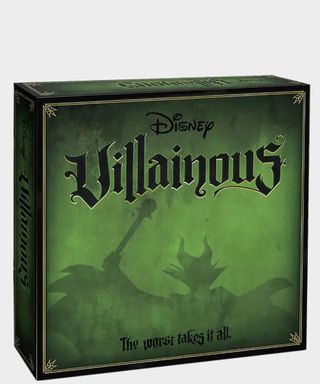
If you can get to grips with its rules, you'll discover one of the most rewarding picks here. Villainous sings in every respect that counts; it feels fresh each time you play, and different match-ups encourage new strategies.
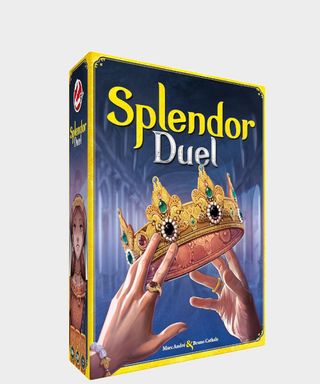
Are you a competitive person? You'll appreciate this two-player variant of the original Splendor. Much like 7 Wonders Duel, it reduces its predecessor in size and scope without sacrificing quality. In fact, it's potentially better…
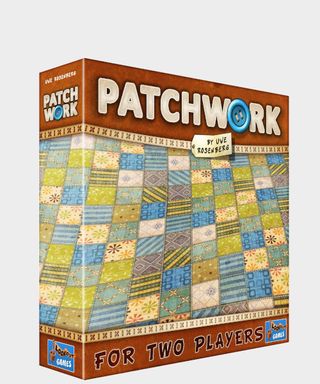
This puzzle game is simple but oh-so satisfying. It's essentially tabletop Tetris, except you're trying to fill your board with quilt patches. You lose points for blank spaces at the end, so you'd better get your thinking cap on.
Best RPG board game
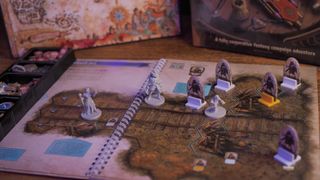
Specifications
Reasons to buy
Reasons to avoid
If you have a soft spot for fantasy and love nothing more than poring over ye-olde maps while dreaming of adventure, Gloomhaven: Jaws of the Lion should be on your radar. This dungeon-crawling epic taps into all that with branching storylines more commonly seen in the best tabletop RPGs, and it makes skilful use of 'Legacy' mechanics where the consequences of your actions carry across from one session to the next.
Seeing as it's more accessible than the original Gloomhaven (and much less expensive), this is a great place to start regardless of whether you intend to tackle other entries in the series or just want a taste of adventure. Yes, it's more complex than many other board games. But it's also a whole lot better.
✅ You want an epic adventure game: Seeing as you'll be embarking on grand adventures and crawling through dungeons each session, Jaws of the Lion will hit the spot if you're in the mood for some swords 'n' sorcery. Plus, the fact that you level up your characters over time should scratch that RPG itch too.
✅ You want your choices to matter: Because your decisions are carried over from session to session, what you do really does matter. The world feels much more alive and infinitely more memorable than most other games on your shelf as a result.
❌ You want something simple: Despite being a lot more accessible than standard Gloomhaven (it was pitched as an easier way into the game), Jaws of the Lion is still a lot denser than most board games. Keep that in mind before hitting the checkout.
❌ You're expecting it to be as deep as standard Gloomhaven: The original Gloomhaven (not to mention its sequel, Frosthaven) defines 'sprawling fantasy epic.' Indeed, it'll take you months to finish. Even though Jaws of the Lion has plenty of depth, it's nowhere near as big. If you're expecting it to be on par with its predecessor, you'll be disappointed.
Features & design: Jaws of the Lion casts you as a mercenary looking for work in the grungy metropolis of Gloomhaven (imagine the world of The Witcher and you won't be far off). As is only right for fantasy RPGs, said 'work' involves swords and/or sorcery. These jobs lead you through a grand narrative where your choices matter, so tread carefully. Decisions can, and will, have consequences.
While that sounds intense, the game has been designed with accessibility in mind. Unlike the full Gloomhaven or its sequel, Frosthaven, this one is smaller in scale and drip-feeds everything you need to know piece by piece. That includes a novel combat system which gets rid of random dice rolls. Rather than leaving success up to luck, all of your movement or attack actions are divvied up onto cards instead. The challenge lies in deciding which ones to use - and when.
The same handsome tokens and components have made their way across from Gloomhaven, though. Actually, I'd argue that its map board (upon you which you slap stickers to represent the missions you've completed) is better-looking than its predecessor.
OK, so the models may still be clunky in comparison to rivals like Descent: Legends of the Dark and Bardsung. Yet everything else sings, especially that moody artwork for your foes.
Gameplay: Few board games can match the sense of agency in OG Gloomhaven, and it's no different for Jaws of the Lion. Along with upgrades for your character that'll provide a more personal connection with them, battles being so skill-based makes victory all the sweeter. Your clever tactics saw you through, not luck of the dice. And while there is still a steep learning curve, it's far less intimidating than its predecessors.
It's also worth persevering with. Honestly, there's nothing quite like the combat of this series. Trying to figure out the best combination of actions to use at any one time is a compelling mini-game in itself, and juggling your limited resources (you'll lose cards as you progress) makes for a challenging puzzle.
Seeing as you'll have to balance helping your allies with hunting loot that can improve your hero, there's also a sizzling unease to keep you on the edge of your seat. Can your friends be trusted in a pinch, or are they more interested in helping themselves?
Criteria | Notes | Score |
|---|---|---|
Game mechanics | The creator of Gloomhaven isn't a fan of how many roleplaying games rely on luck, so endeavoured to create a purely skill-based system. It paid off here, and those mechanics are the perfect companion to a world where choice is paramount. | 5 / 5 |
Accessibility | Even though it's a much better entry-point than the original Gloomhaven, this is still more complicated than other board games. | 3 / 5 |
Replayability | With such emphasis on 'Legacy' elements (where the consequences of your actions carry across to the next session), it's tough to revisit Jaws of the Lion unless you want to start over or have invested in non-permanent stickers. | 3 / 5 |
Setup and pack-down | It's nothing compared to its predecessors, but Jaws of the Lion is still a well-stocked game with a lot of pieces to put into place. Still, its campaign book removes the need for separate board tiles. | 3 / 5 |
Component quality | This is the ultimate fantasy game thanks to incredible artwork and highly thematic pieces that make it feel as if you've stumbled upon a forgotten treasure chest of fantasy goodies. | 5 / 5 |

"Jaws of the Lion takes a dungeon-crawling experience that is expansive and epic, and makes it slightly less expansive … but no less epic. This hefty chunk of fantasy co-op goodness will take you through many a session of monster battling and exploration. Narrative does take a bit of a backseat here but I’d argue that looking cool and looting treasure is a sufficient backstory for any adventurer." Read more: Gloomhaven: Jaws of the Lion review
Load honorable mentions ↓
Honorable mentions
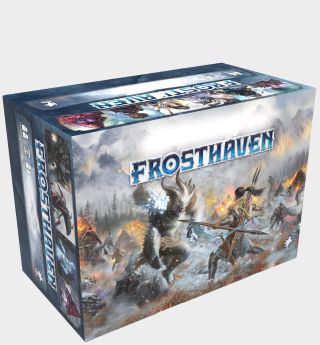
If you tried and loved Jaws of the Lion, it's time to graduate to Frosthaven. This sprawling epic takes those mechanics and builds them out into a grand adventure unlike anything else in board gaming right now.
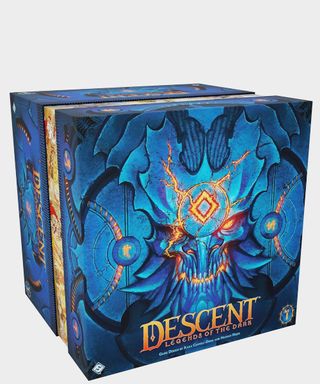
I've always got time for a fantasy adventure, but Descent truly impressed me. A clever blend of tabletop gameplay and app-based enemies bring the experience to life in a way few of its rivals can.
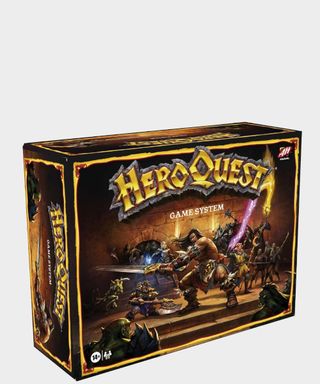
Regardless of whether you grew up with the original version or are new to the best board games, it's worth keeping HeroQuest in mind. It wrote the book on tabletop adventuring, and still has a few tricks up its sleeve.
Best strategy board games
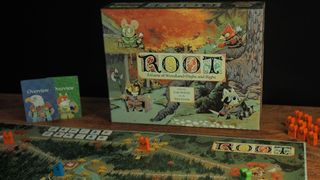
Specifications
Reasons to buy
Reasons to avoid
Looks can be deceiving, and Root is the perfect example. Despite an inviting art-style, this is about as hardcore a strategy game as it gets. Alright, so the action takes place in a quiet woodland realm. However, all is not well beneath those trees. The animals living there want to kick the stuffing out of each other, and you'll need to hatch schemes that'll put your faction on top.
So long as you're happy to do a little homework in terms of its mechanics, you'll find that Root has a lot to offer. It's essential for strategy fans thanks to spotless asymmetric gameplay, and being able to boost the experience with a number of expansions keeps that spark alive.
✅ You love deep strategy games: Root may look cute and cuddly, but it's ruthless. The tactics on display here are some of the industry's best, and because each faction has its own rules and objectives, there's plenty to grapple with.
✅ You want something you can really get your teeth into: This is the sort of game that gets better after repeat sessions - you'll only truly grasp what your faction can do after using them a few times. In short, the more you play, the better your matches will be.
❌ You're turned off by dense rules: There's no way to sugarcoat this - the rules of Root are intimidating. Due to each faction having its own mechanics on top of an already-complex system, you'll need to spend time swotting up on how to play before you place your first meeple on the board. Naturally, that won't appeal to everyone.
❌ You can't commit to multiple playthroughs: Root is at its best when you can return to it over and over, so anyone that isn't able to do so will have more luck with other games.
Features & design: Much like the Redwall novels, each player commands a tribe of anthropomorphic creatures that must fight to control the forest's clearings. (In practical terms, that means collecting 30 'Victory Points.') The base game gives you control of four factions: the 'Marquise de Cat' that must cement their rule by putting down rebellion, feudal birds who operate via espionage, an insurgency of 'peasant' animals (mice and hedgehogs) called the Woodland Alliance, and an adventuring racoon who sneaks around the board. Each one has its own unique playstyle, and although there's a lot to take in, it encourages you to think creatively.
Fortunately, the nuts and bolts of battle are much more straightforward. Players simply roll dice and compare results to see how a fight turns out, with more meeples being able to deal greater damage. That allows you to get a sense of how combat will turn out just by looking at the pieces you've got on the board. Throw crafting and special abilities into the mix (found on a deck of special cards that you'll draw on throughout the game) for a heady tactical cocktail.
Not that you'd be able to tell from how Root looks. It carries a charming aesthetic by the hugely talented Kyle Ferrin that is reminiscent of Mouse Guard, and few board games in this guide can match the personality he brings to bear.
While you'd expect his work to be found across cards and the board itself, it's neat that his design extends to Root's playing pieces too. Rather than being plain wooden meeples in the shape of animals, these ones have expressive eyes that bring them to life.
Gameplay: First things first - be aware that there is a learning curve here. While our review called it "the most accessible complex wargame," Root is still a complicated beast that requires some investment. There's a payoff, though. Persevere and you'll wind up with one hell of a strategy board game.
I've never seen two games go the same way, for instance. Each factions' quirks (and the cards that can influence them) provide a wealth of options each turn, and while this is overwhelming at first, such flexibility makes Root truly compelling in the long-term. It's incredibly replayable.
Similarly, the simplicity of its combat isn't a drawback. The fact that meeples can only move into spaces their faction controls (or where they have a numerical advantage) allows clever generals to squeeze opponents into a corner. Well-timed bonuses also add texture to this elegant yet rich system.
Criteria | Notes | Score |
|---|---|---|
Game mechanics | As with so many of the best board games, Root isn't content to leave each player with the same objectives. Every faction handles differently and wants something unique, so the interplay between them is top-tier so far as strategy goes. | 5 / 5 |
Accessibility | The effort is more than worth your while, but players will need to put in some time to learn this one. | 2 / 5 |
Replayability | Although the game's complexity makes it less accessible than others, that increases its replayability by a significant amount. | 5 / 5 |
Setup and pack-down | It doesn't have the most complicated setup, but Root isn't exactly a game you can break out on impulse. | 3 / 5 |
Component quality | Kyle Ferrin's mesmerizing artwork pairs brilliantly with quaint wooden meeples for an incredibly wholesome aesthetic. | 5 / 5 |

"A masterful application of asymmetry in board games, Root manages to weave a tale of four distinct factions duking it out in the forest that never feels unbalanced. Turning your hand to the skills of one faction, you might find your wings in the slow-burn strategy of the Eyrie Dynasty, or dig your claws into the industry-centric Marquise de Cat, but no matter your favored strat, no game is ever the same." Read more: Root review
Load honorable mentions ↓
Honorable mentions
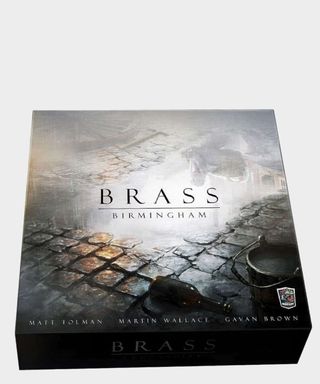
In an unexpected twist, this board game is one of the best-rated titles out there. Equal parts trading game and simulation, you play a businessperson during the industrial revolution who must take advantage of an ever-changing market.
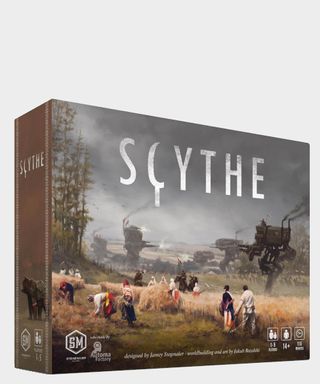
Born out of gorgeous artwork depicting an alternate history with added mechs, Scythe is an engine-building game where you have to lead your nation to power in the 1920s. It doesn't rely on luck, though; gameplay revolves around skill.
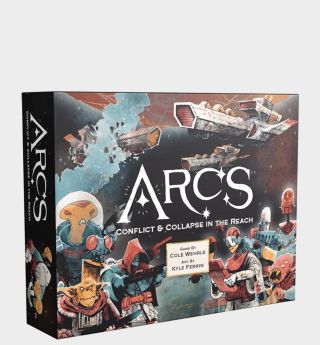
This wildly imaginative strategy game comes from the creators of Root, which tells you almost everything you need to know. The more you play, the more you'll discover; this is a vast tabletop world with dizzying possibilities.
Best classic board game
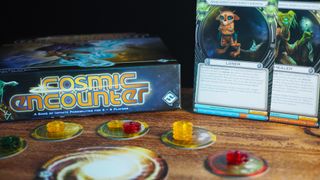
7. Cosmic Encounter
Our expert review:
Specifications
Reasons to buy
Reasons to avoid
This sci-fi favorite was first published in 1977 and has been through numerous editions since then, but all of them have something in common - they're brilliant. Few classic board games have aged as well as this; its blend of strategy and quick-talking was peerless at the time, not to mention now.
Indeed, Cosmic Encounter is clever enough to run rings around its peers, so it comes highly recommended almost half a century after it first landed. I bet it'll still be going strong in another 40 years.
✅ You want something a little different: Cosmic Encounter takes one look at 'normal' rules, shrugs, and decides to go in the opposite direction. Part of the fun is that its playable species break the game's own mechanics.
✅ You love games with talking and bluffing: Diplomacy is a crucial pillar of Cosmic Encounter, so it's a great fit for anyone that likes negotiation, deception, or bluffing games. Trying to convince other players to join your cause can mean the difference between winning an encounter and losing. It's also a good way of deceiving rivals by turning 'alliances' into an ambush…
❌ You want something simple: Because it rips up the rules (in a manner of speaking, anyway), Cosmic Encounter may not be your speed if you want something really straightforward.
❌ You don't like lots of talking: There are no two ways about it - Cosmic Encounter is a 'talky' game. If the idea of having to negotiate each round is a turn-off for you, best steer clear.
Features & design: Cosmic Encounter enjoys breaking its own rules. It's like a pedantic teenager that does the opposite of what you ask; this is a fiercely creative game. which prides itself on individuality.
Each player takes the reins of an alien race, and their aim is to establish colonies on planets owned by rivals. They can do so through force (by playing a larger number from the cards in their hand) or negotiation. But the process isn't as simple as it sounds. To begin with, every 'encounter' allows players to make alliances that can tip the balance in their favor. What's more, all species have a special power that breaks the game's own rules in some novel way. Examples include winning by losing or reversing attack card numbers so 17 becomes 71.
The visuals are suitably outlandish to match this energy. There's a tremendous originality behind each of the species you can control, even if their spaceships are all represented by the same UFO tokens on the board. This is then brought together by sci-fi trappings I wouldn't be surprised to see in Mass Effect.
Gameplay: All those special powers make the game delightfully unpredictable. Seeing as 51 alien species are included in the base set, there's almost always something new to see, learn, or overcome. You never get a chance to rest on your laurels as a result, and different matchups require different strategies. Simply put, it's energizing.
I missed this one during my childhood, and I'm gutted about that. I fell in love with Cosmic Encounter as soon as I started playing it thanks to novel gameplay that's like a breath of fresh air, even 40ish after it first came out. It combines a lot of my favorite things about tabletop gaming; you'll spend each match trying to convince others to join your cause (or not blow you up), thinking up devious tactics, and immersing yourself in a bizarre new world full of weird creatures.
Like many of the best board games, Cosmic Encounter creaks beneath the weight of expansion packs as well. More than half a dozen add-ons are available if you want to shake things up, so there's plenty to keep you busy here should you grow tired of the base game.
Criteria | Notes | Score |
|---|---|---|
Game mechanics | There's no wonder Cosmic Encounter has been around for so long; it's incredibly clever. The number-based combat system might be no-nonsense, but each faction breaking the rules in some way makes for a fascinating challenge. | 5 / 5 |
Accessibility | Seeing as each playable species changes or breaks the rules in one way or another, Cosmic Encounter can take some getting used to. | 3 / 5 |
Replayability | You can play as one of 50 alien species that each have their own unique powers (which interact differently with one another in turn), so there's a lot of mileage here. | 5 / 5 |
Setup and pack-down | In spite of all that complexity, Cosmic Encounter isn't some sprawling behemoth of a game. | 4 / 5 |
Component quality | When you combine phenomenally imaginative art with high-quality components, this game should make a good impression. | 5 / 5 |

"Risk may be better known, but this classic board game is arguably more praiseworthy. It's just as absorbing now as it was in the '70s, and few can match its (slightly depraved) creativity."
Load honorable mentions ↓
More classic recommendations
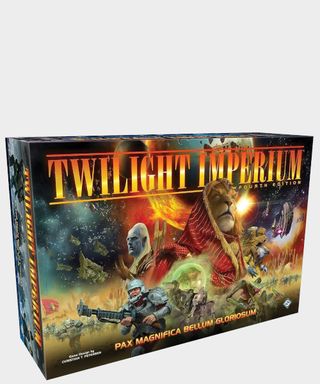
Besides being famously sprawling in scope, Twilight Imperium is often seen as one of the best board games for strategy fans. The relationships between players' factions – and their secret objectives – can make matches last hours.
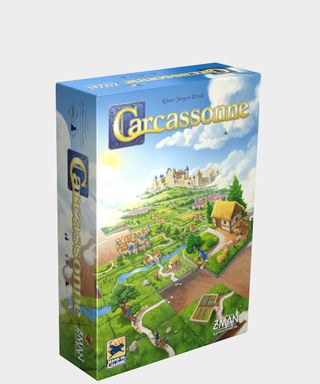
While you can play Carcassonne with more people, I'd argue that two is the perfect number. You get more turns with this chilled-out modern classic from 2000, and there's added flexibility for each match as a result.
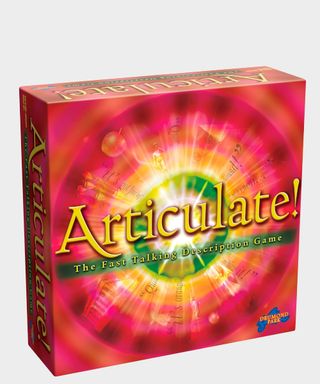
If friends and family are descending upon you en-masse, Articulate is one of the best board games to break out. Having appeared on shelves since 1992, this is a trivia triumph that everyone can get involved with.
Best board game for families
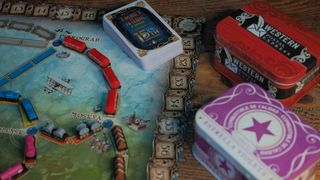
Specifications
Reasons to buy
Reasons to avoid
Ticket to Ride is one of the most laid-back entries on this list, and that makes it the perfect choice if you want the best family board games that aren't going to start a civil war around the table. Thoughtful and relaxing, it's a delight for all ages that lets players tackle the challenge at their own pace.
It does still have tactical bite, though. More specifically, figuring out the best way from A to B whilst working around roadblocks laid by your rivals is an engaging puzzle.
✅ You want something easy but fun: Looking for a game that's accessible, but not boring? Despite being easy to understand, there's still enough strategy here to keep you interested.
✅ The people you're playing with aren't board gamers: Even if your opponents have never played anything more exotic than Monopoly, they'll still be able to get involved easily enough.
❌ You want something that'll challenge you: Even though there are tactics on display in Ticket to Ride, it's not going to stretch you. This is a fairly laid-back experience overall.
❌ You'll be playing it a lot: Ticket to Ride can get a little tired if you overdo it. It got me through lockdown during the pandemic via virtual matches with family, but eventually we learned all the routes and the game lost its shine.
Features & design: Picture the scene - it's the early 1900s, top hats are in, and trains are still of the steam variety. In this quaint landscape of frilly frocks and tail-coats, you've got to plot railway routes from one city to another. Whoever completes the most lucrative lines will win.
Sounds easy so far, right? And to an extent, it is; you couldn't call Ticket to Ride an overly competitive game. That's why it's such a good board game for families. There isn't as much opportunity for squabbling, which is something I think we can all appreciate after Christmas sessions of Monopoly gone wrong.
You shouldn't expect to coast, though. You need sets of differently-colored train cards to lay down routes, and because these are taken from either a face-up market available to everyone or drawn blind, others might work out what you need and beat you to the punch by taking those cards first. Plus, not completing routes will dock your score at the end of the game. This adds a push-your-luck element to proceedings.
With Ticket to Ride's turn-of-the-century vibe, that's fitting; it's couched in a time when the world was your oyster. There's an appealing steampunk tinge to everything as a result, and even the tokens have gone the extra mile thanks to being fully 3D carriages.
Gameplay: The railway theme may not light your world on fire, but there's an undercurrent of strategy holding everything together that allows it to hit the perfect balance of family-friendliness without losing any tactical complexity. That makes Ticket to Ride one of the best board games even if its players haven't ventured much beyond Scrabble.
It's not overly aggressive, either. Unlike so many entries on this list, there's less emphasis on screwing each other over. Although it is possible to ruin someone's day by building across their route, there's usually an alternative with which you can salvage all that time and effort. As such, Ticket to Ride is something I'm more than happy to break out if things typically get heated at family gatherings. Like our review mentions, it's "the perfect option for newcomers and tabletop veterans alike."
Criteria | Notes | Score |
|---|---|---|
Game mechanics | This is a straightforward system, but it excels in spite of – or perhaps because of – that. It's easy to grasp, but there's a lot to think about during each session. | 4 / 5 |
Accessibility | Ticket to Ride's simplicity makes it very easy to get into, and most will have no trouble learning its ins and outs. | 4 / 5 |
Replayability | While it does have some longevity, you will eventually learn the routes if you play on repeat. That robs the game of some sparkle. | 3 / 5 |
Setup and pack-down | In spite of a slightly more laborious pack-down (you've got to gather up dozens of train models), nothing else here is taxing. | 4 / 5 |
Component quality | Due to plastic train tokens, quality card stock, and a sturdy board, Ticket to Ride won't fall at the last hurdle. | 5 / 5 |

"A tense but incredibly rewarding experience that opens itself up to strategy and logic just as easily as it does creative thinking and social play." Read more: Ticket to Ride review
Load honorable mentions ↓
Honorable mentions
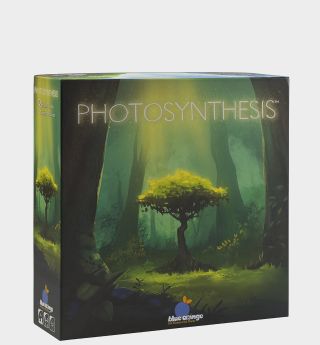
If you're looking for something more in-depth, Photosynthesis will do the trick. Its task of growing your own forest and earning points is a challenge, but in a satisfying way – it's not confusing or overly competitive.

Trying to find board games without confusing rules? Herd Mentality says hello. It's easy to get the hang of and won't ever go out of date, because it hinges on what everyone else thinks. There's no 'right' answer – your aim is to be in the majority.
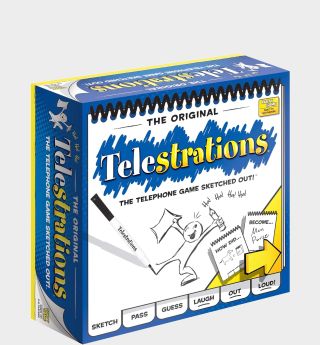
It may be simple, but Telestrations still stands out as one of the best board games for families. Each round starts with you getting a prompt you have to draw, and the next person guesses what it is – and so on. The result is wonderful chaos.
Best board game for kids
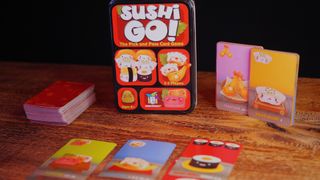
9. Sushi Go!
Our expert review:
Specifications
Reasons to buy
Reasons to avoid
This light-hearted game is perfect if you want something quick but fun; it's got the secret sauce of being fast-paced with easy-to-understand rules. More specifically, you can learn and complete it in under 15 minutes. That means you won't mind playing round after round (which is always handy when it comes to board games for kids), especially because Sushi Go's gameplay is so moreish.
✅ You want something quick and easy: Seeing as matches rarely last longer than 15 minutes, Sushi Go occupies the sweet spot in terms of a kid's attention span. Its gameplay is blissfully simple too, so you won't spend most of that time explaining how it all works.
✅ You want something portable: Sushi Go comes in a handy little tin and doesn't take up much room in use, so it's ideal for slinging in a backpack for days out or when you're on vacation.
❌ Your kids hate math: Because you have to understand basic math to work through Sushi Go, it won't be a good fit for very young children or those who are practically allergic to sums.
❌ You want a game for very young kids: Most will be able to get a grip on Sushi Go without much fuss, but younger children may struggle to think ahead enough.
Features & design: Sushi Go is different every time you pick it up. It works in a very similar way to Exploding Kittens, with players taking a card and passing the rest on… except here you need to build a selection of dishes that earn points over the course of three rounds. Whoever racks up the biggest score wins.
Some of these cards are worth a lot right away, others provide multipliers, and yet more require you to collect a set for bigger payouts. This means that there are multiple approaches you can take on your path to victory. (Just don't forgot about Puddings, which are only scored at the end of the game and may tip your score over the edge.)
The art accompanying all this is delightful. Each dish has been given a cartoon makeover, which makes even me - someone who is notorious for avoiding seafood - want sushi.
Gameplay: The elevator pitch for Sushi Go is simple, but don't think it's shallow as a result. Because you'll be looking through your hand of cards before passing it to the next player (and can obviously tell what others have picked), smart cookies can sabotage their rivals by taking the cards someone else needs. It's deliciously devilish, and most will pick it up quickly.
The game's rapid-fire nature makes it a winner with little ones that don't have much patience, too. Matches don't take long and are easy to set up, so you can happily run an encore without much trouble.
Not that this is only for kids, of course. It'll be a hit with all ages, and is a great warm-up game before moving on to something with more depth. I have many fond memories of playing this with friends or family at parties, so it usually gets thrown into my bag if a get-together is due.
Criteria | Notes | Score |
|---|---|---|
Game mechanics | Sushi Go may not be overly complicated, but the investment you feel in building a killer score draws you in just as much as an in-depth strategy game. | 3 / 5 |
Accessibility | Like all good board games for kids, this one can be explained and set up in a flash. Everyone will get the hang of it in no time. | 5 / 5 |
Replayability | Because the cards you go for are dependent on what's drawn each turn, every match of Sushi Go feels as fresh as sashimi. | 4 / 5 |
Setup and pack-down | This game only involves a deck of cards that are packed away into a tin once you're finished, so it's probably the easiest to set up on this page. | 5 / 5 |
Component quality | Hard-wearing cards and a tin to store them in ensure that Sushi Go is in it for the long haul. | 5 / 5 |

Sushi Go is a quickfire gem that won't get boring any time soon. It's light, breezy, and charming enough to turn you into an instant fan. Plus, the fact that it doesn't have a board makes it a great travel option for gamers on the go.
Load honorable mentions ↓
Honorable mentions
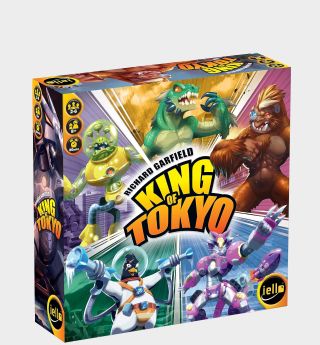
Brilliant beatdown
The concept for King of Tokyo is pure gold: you're an over-the-top monster rampaging downtown. In terms of gameplay, everyone's playing chicken to see how long they can hold out, and it's brilliantly tense.
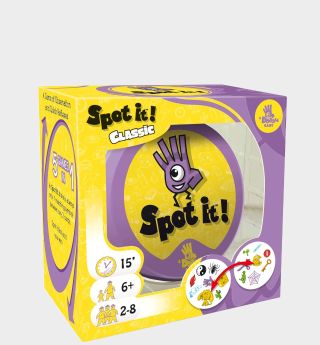
Keep those eyes peeled
If you're looking for a quick and easy distraction at home or on the go, try Spot It (AKA Dobble in the UK). As the name would suggest, it's about seeing matches faster than anyone else, and is ideal for younger kids.
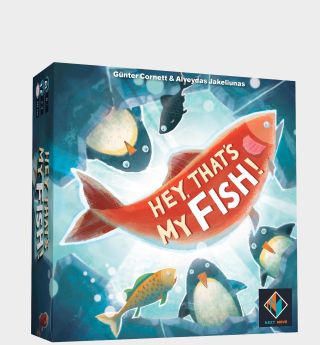
Oi, hands off
Besides a silly title that should go down well with children of all ages, this is simple to get the hang of but endlessly replayable. You've got to collect fish while cutting off your opponents, so requires problem-solving to master.
How to choose the best board games
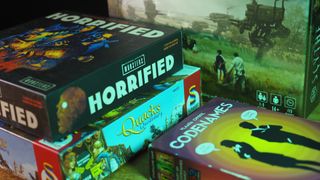
If you can't decide what you're looking for, or are feeling lost at the sheer amount of choice (you've got many types of board games to pick from, after all), there are a few questions you can ask yourself to narrow things down. Whenever we're looking for the best board games, our experts ask:
❓ Who are you buying for?
It's surprisingly helpful to think about who you'll be playing with. If you're mainly going to be going up against family or friends that don't like anything too complex, accessible 'family' titles like Ticket to Ride or Herd Mentality are going to be the way forward.
Are you trying to find a more in-depth game to play with your board-gaming friends, on the other hand? Go in the opposite direction - avoid family-focused products and consider 'hobby' games like Betrayal at House on the Hill, Disney Villainous, or Pandemic instead.
🕐 How much time are you willing to spend?
It's a simple query, but will really help you zero in on the experience for you. If you lack spare time and want something quick and easy to understand, you're better off sticking with party games from companies like Big Potato or entry-level hobby games such as Catan and Carcassonne. If you're willing to dedicate more, on the other hand, I'd point you in the direction of more complex strategies such as Wingspan or Life in Reterra.
👨👩👦 How many players will there be?
It sounds obvious, but giving some thought to the number of people that'll be sitting around the table with you is crucial. Some games can only be played with two people, while others require a bigger crowd.
🎲 What games do you like already?
If you're a fan of a particular style of game, trying to find something like it is a good way forward. Enjoy the easy-going nature of Herd Mentality? Pick up Color Brain next. Are you a fan of the high-fantasy HeroQuest? Try Frosthaven, or Descent: Legends of the Dark.
The developers at Modiphius also gave us some helpful advice when we talked to them about their Discworld adaptation; although they were talking about tabletop RPGs, it's still relevant to the best board games. To them, it's "vibes all the way down... play (or watch, or read) a bunch of games. It’s the easiest way to figure out what you like and what you don’t. Eventually you’ll find something that makes your serotonin receptors light up and go ‘ping.’"
It's certainly worth the effort. As Magic: The Gathering creator Richard Garfield told us when we interviewed him, the best board games allow us to "connect with anyone in a relatively safe way. Whether you feel comfortable with socializing with other people or not, a game provides a way to engage. If you know the rules you don’t even necessarily need to speak the same language! This ability to broadly connect people is powerful, and more important than ever."
How we test the best board games
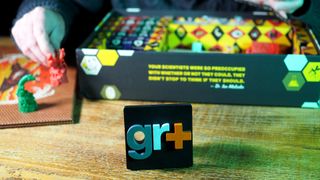
The way we test products is incredibly important to the 12DOVE team, and our experts (who have years of experience covering the industry) won't ever recommend anything unless they legitimately feel it's worth your time. If we don't think a product is one of the best board games, it doesn't get onto this page.
You can find more details in our dedicated 'how we test board games' feature, but the 12DOVE process involves our reviewers spending as much time playing and living with a game as possible, allowing us to go far beyond surface-level judgements. This helps them ascertain what it does well, what it fails at, and its overall longevity. We also run multiple sessions with different player counts, just to see how the experience differs.
When approaching the critique on this page, we use four distinct sections described below:
- Introduction: We discuss the 'elevator pitch' of a game (what does it do differently?) here, along with 'buy if/don't buy if' boxouts to help you decide if it's right for you at a glance.
- Features & design: A game's basic mechanics are discussed here. We also explore its art/components in this section.
- Gameplay: As the name would suggest, the majority of our review will focus on a game's mechanics. Is it fun? Is the core loop satisfying? Is the pacing off? We'll discuss everything we did and didn't like about gameplay here.
- Should you buy: The best board games aren't always cheap, so this section is about providing a balanced overview of our thoughts. Reasons to buy or not to buy appear here too.
We finish each recommendation with a ratings table that covers essential elements like setup, complexity, and the good old-fashioned question of whether gameplay is fun or not. It looks something like this, and features a score out of five for every category:
Category | Notes | Score |
|---|---|---|
Game mechanics | A breakdown of how good the game's systems are. | ? / 5 |
Accessibility | Is the game easy to get into? We let you know here. | ? / 5 |
Replayability | Our experts dig into the longevity of a game here. | ? / 5 |
Setup and pack-down | Can you set the game up quickly, or is it a pain to put away? We'll give our verdict in this section. | ? / 5 |
Component quality | Are the game's pieces going to last? We'll let you know. | ? / 5 |
For a more in-depth examination of our process sitewide, be sure to see the 12DOVE review policy.
Best board games FAQ
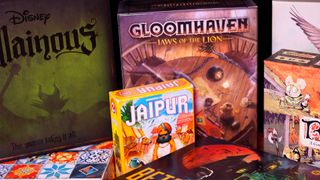
What is the most popular board game in 2025?
- Pandemic designer's Lord of the Rings game is getting hype
- A fish spin-off of Wingspan is on the way
- Chess is still immensely popular with 3m sales each year
It's a brand-new year, and that means we have 12 months of new games to look forward to.
While many old favorites are still causing buzz in 2025, the likes of SETI are getting a lot of attention on fan forums. However, the game I've seen the most excitement about would have to be the Pandemic designer's upcoming Lord of the Rings project. Considering how they're responsible for one of the best board games of this generation, I'm not surprised at the hype. The recently announced Wingspan spinoff Finspan is making waves too.
Still, it's not just new contenders winning popularity contests in 2025. As always, family-favorites such as Connect 4 come up trumps according to Amazon's best-sellers list, followed by modern classics such as Codenames and Ticket to Ride. Sure, that's not a definitive guide. But seeing as Amazon is potentially the most popular retailer in the world, it's a decent temperature check. Similarly, it's true that this doesn't account for what customers thought of the game after they played it, but it's a starting point.
Of course, there's no way to discuss popular board games without addressing the elephant (or should that be pawn?) in the room - chess. This ancient pastime has been going strong for longer than anyone can remember, and such staying power is reflected in annual sales. To be precise, chess has a habit of shifting around 3 million units each and every year. That's more than most of the best board games combined.
What is the #1 board game?
- Chess wins for sales (3m every year)
- Brass: Birmingham & Pandemic are well-rated
- 'Legacy' mechanics are always popular
If you were looking for the top board game in terms of sales, it'd almost certainly be chess. This ancient pastime sells around three million units each and every year, making everything else on the market look pretty insignificant by comparison. Monopoly follows shortly afterward with more than 200 million copies sold across its 80-year lifespan, which isn't bad going by any stretch of the imagination.
If we were going by ratings, however, it'd be a very different story. If you take a look at popular tabletop forums, you'll often find the likes of Brass: Birmingham or RPG epic Gloomhaven ranking highly. Indeed, we've certainly rated Gloomhaven and its smaller prequel as highly as we can thanks to their incredibly high quality. Actually, 'legacy' mechanics such as those seen in the latter (where the consequences for your actions carry over from session to session) are often a big hit with players.
So, what do we think? In the opinion of the 12DOVE team, we believe it depends on the kind of game you're looking for - the answer varies based on whether you'd like a co-op experience, strategy, or something else entirely. As luck would have it, we've listed what we think are the best board games in each category on this very page...
Which board games should I look forward to in 2025?
The tabletop gaming world never sits still, and new products are landing on shelves every single month. (It feels like there's a steady avalanche, in fact.) Because there's so much to sift through, the 12DOVE team and I have rounded up a few board games we're looking forward to in particular this year. If you put anything on your wishlist over the next few months, we'd suggest making it these entries.
The Fellowship of the Ring: Trick Taking Game | View at Amazon
There's a lot of excited buzz surrounding this beatifully-illustrated card game, and it's a novel spin on the trick taking concept thanks to co-op gameplay. I managed to see it in person at the London Toy Fair early this year and walked away impressed, so I recommend putting it on your wishlist now.
Arydia: The Paths We Dare Tread | View at Far Off Games
Here's an enormous, open-world RPG to keep us all busy. Having been in the works for years after a successful Kickstarter, and it promises epic co-op adventures featuring 60+ pre-painted miniatures, 40+ hours of play, and around 300 map cards. Contributor Katie Wickens is digging into this as we speak, so we should get her thoughts soon.
The Witcher: Path of Destiny | View at Gamefound
This narrative-based game caught our eye because it's a blend of the classic short stories from Geralt's past fed through the world of CD Projekt Red's games. If you're a fan of choose-your-own or story-heavy experiences with a gritty twist, this should be on your wishlist.
Where can I buy cheap board games?
We spend a lot of our time looking for good board game deals each week, and we've built up a list of go-to retailers that have proven to be consistently reliable. You can find these below.
US
- Amazon: The best for variety across a range of games
- Target: Often gets exclusive products
- Walmart: Surprisingly good discounts
- Miniature Market: Reliable deals on hobby games
- Best Buy: Decent for popular family games
UK
- Amazon: Best for overall variety of deals
- Magic Madhouse: Has surprisingly good offers
- Zatu: Wide-ranging deals on hobby games
- Argos: Good reductions on classic family games
- Very: Respectable family game deals
- John Lewis: Solid deals on all kinds of games
What is the most interesting board game?
- Gloomhaven has an ambitious branching storyline
- Twilight Imperium's complex strategy impresses
- Betrayal at House on the Hill is always evolving
The answer for this question comes down to personal preference, naturally, but I find that it depends on how much time you're willing to invest in a board game too. If we define 'interesting' as 'complex,' the likes of Gloomhaven can't be beaten. This RPG adventure has multiple characters you develop over time in a branching storyline that reacts to your choices, and its combat doesn't rely on chance in the slightest - it's all about skill. If you want an experience that stretches your gray matter, this should do the trick.
Twilight Imperium is very similar in the way it gives you so many systems to grapple with. The game is actually borderline-notorious (in a good way, though) for being so feature-rich, as it has you guiding your faction through a galaxy of political wrangling. I'd say that qualifies as 'interesting.'
On a more personal level, I'll never miss a chance to call out Betrayal at House on the Hill and Disney Villainous. These 'hobby' board games are designed to be played over and over again, partially because the experience always differs and also because getting good at them requires repeat visits. This allows you to properly get your teeth into their layered gameplay, and mastering them is a satisfying challenge.
Eager for more recommendations? If you want something to play at your next game night, definitely check out the best party board games. As for something more adventurous, don't miss the best D&D books.
Sign up to the 12DOVE Newsletter
Weekly digests, tales from the communities you love, and more

I've been writing about games in one form or another since 2012, and now manage 12DOVE's tabletop gaming and toy coverage. You'll find my grubby paws on everything from board game reviews to the latest Lego news.
